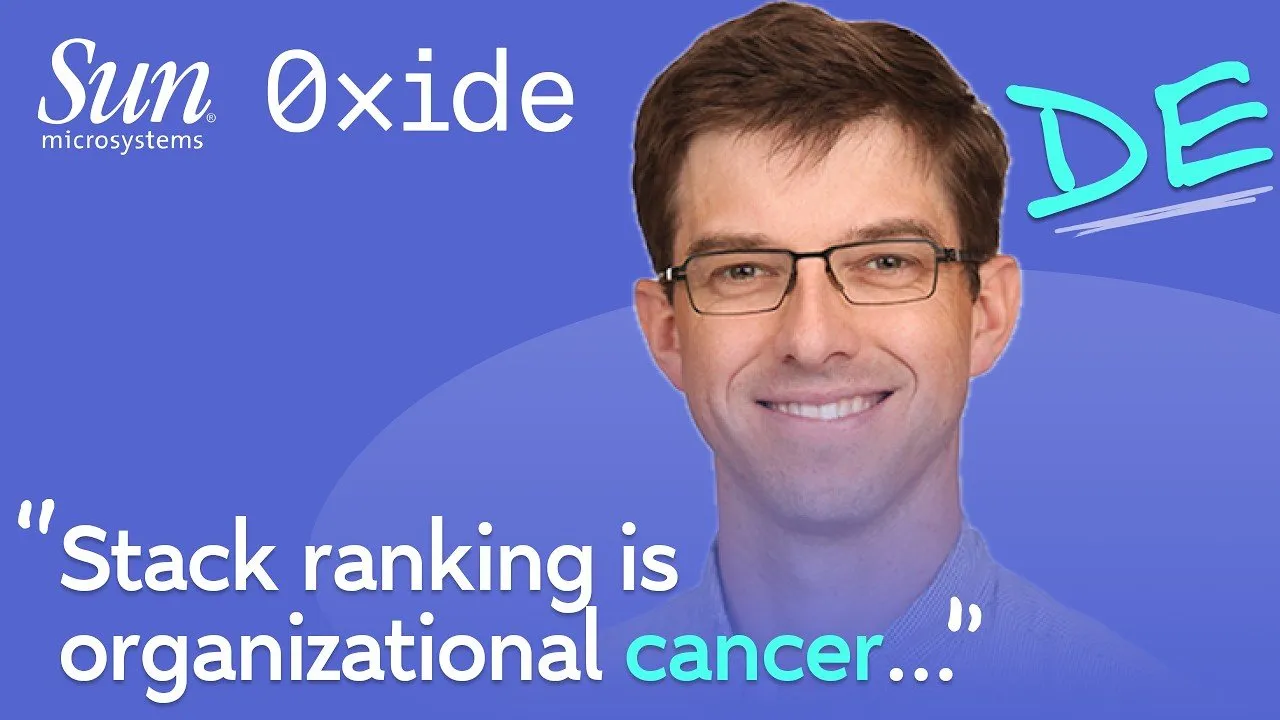Table of Contents
Basic Capital offers 4-to-1 leveraged retirement investing, but most funds flow to private credit rather than stocks due to interest payment constraints.
College finance clubs now require DCF modeling skills from freshmen as Wall Street recruiting moves earlier, creating educational arms race starting in high school.
Key Takeaways
- Basic Capital enables 4-to-1 leverage in 401(k) plans but allocates 85% to fixed income rather than stocks due to interest payment requirements
- College finance clubs conduct multiple interview rounds for freshmen, including technical modeling questions that make students cry during interviews
- High school seniors now study finance during spring semester to prepare for college investment club applications
- Tesla explores creative solutions to compensate Elon Musk after Delaware courts invalidated $100 billion stock option package
- Private credit's 12-14% promised returns drive institutional allocation shift from public equity despite higher fees
- Academic theory supports early-career leverage for retirement investing, but practical implementation creates awkward compromises
- Wall Street recruiting timeline moved so early that private equity interviews occur before banking jobs begin
- Texas incorporation and new liability protections may shield Tesla from shareholder lawsuits over executive compensation
- Educational competition mirrors travel sports phenomenon, pushing specialization to younger ages with diminishing returns
Timeline Overview
- 00:00–15:30 — Leveraged Retirement Revolution: Basic Capital's 4-to-1 leverage model for 401(k) investing and the theoretical case for early-career borrowing
- 15:30–28:45 — Implementation Reality: How interest payment requirements force most leveraged funds into fixed income rather than stock exposure
- 28:45–42:20 — College Finance Club Arms Race: Freshman interviews requiring technical skills and high school preparation for investment club applications
- 42:20–55:15 — Wall Street Recruiting Evolution: Private equity interviews before banking jobs start and institutional competition for student access
- 55:15–1:08:30 — Tesla Compensation Challenge: Delaware court invalidation of Musk options and potential Texas-based solutions
- 1:08:30–End — Corporate Governance Innovation: Stock manipulation and acquisition strategies to circumvent traditional compensation restrictions
The Theoretical Case for Retirement Leverage
Basic Capital's 4-to-1 leverage offering represents practical implementation of academic theory supporting early-career borrowing for retirement investing.
- Ian Ayres and Barry Nalebuff's 2008 paper argued young workers should lever up retirement investments rather than waiting until later career peaks
- Traditional retirement investing concentrates stock market risk at career end when workers have most money to invest
- Theoretical optimal strategy involves higher early-career stock exposure followed by lower later-career allocation to smooth returns over time
- Basic Capital provides five-year term loans rather than margin loans, eliminating margin calls during market downturns
- Company founder Abdul Alsad, age 30, represents ideal demographic for understanding early-career leverage needs
- Bill Ackman's investment validates institutional interest in leveraged retirement product development
The academic foundation supports leveraged retirement investing as superior to conventional age-based asset allocation strategies.
The Private Credit Compromise
Interest payment requirements force Basic Capital's leveraged retirement strategy into private credit rather than pure stock exposure.
- Five-year loans at SOFR plus 2% require annual interest payments that borrowers cannot easily make from wages
- Optical difficulty of requiring retirees to make additional contributions or sell stocks to pay loan interest
- Solution involves allocating 85% of leveraged funds to fixed income yielding enough to cover interest costs
- Private credit allocation promises 12-14% returns compared to bond funds, enabling interest coverage with surplus
- Final allocation becomes 75% stocks plus 425% credit exposure rather than 500% stock exposure as theory suggests
- Steve Schwarzman's quote about 12-14% private credit returns driving institutional allocation decisions
The compromise achieves leverage but shifts risk from equity volatility to credit market performance.
Private Credit in 401(k) Gold Rush
Regulatory reversal from Democratic skepticism of high-fee 401(k) products to enthusiastic private asset promotion creates investment gold rush.
- Traditional regulatory focus prevented high-fee products in retirement accounts, favoring index funds
- Current administration promotes private asset allocation despite higher fees than public market alternatives
- Empower partnership with Apollo and Franklin Templeton demonstrates institutional push into retirement private assets
- 30-year investment horizons theoretically justify illiquidity premium and higher risk tolerance
- Cynical interpretation suggests fee extraction from captive retirement savers with limited alternatives
- Sensible interpretation emphasizes diversification benefits and appropriate risk-taking for long-term investors
The regulatory shift enables private asset managers to access massive retirement savings pools previously restricted to low-cost investments.
College Finance Club Gladiator Schools
Wall Street recruiting timeline compression creates intense competition for freshman spots in exclusive university investment clubs.
- Students must master financial modeling before arriving on campus to compete for investment club membership
- Multiple interview rounds include resume reviews, social assessments, and technical finance questions
- High school seniors spend spring semester studying finance to prepare for college club applications
- Private equity recruiting occurs before banking analyst programs begin, requiring finance knowledge without experience
- Investment clubs become necessary credential for banking recruitment, which leads to private equity opportunities
- Students cry during technical interviews conducted by slightly older undergraduates with minimal professional experience
The educational arms race mirrors travel sports phenomenon, pushing specialization to younger ages with questionable benefits.
The Prestige Trap
Elite finance club exclusivity serves signaling function rather than educational value, creating artificial scarcity that benefits institutions over students.
- Banks compete to sponsor and recruit from exclusive clubs, validating selective admission strategies
- Clubs could expand membership and teach more students finance skills without meaningful quality degradation
- Selectivity exists primarily to signal exclusivity to employers rather than ensure educational effectiveness
- High school resume reviews and social assessments resemble fraternity rushing more than professional development
- Traditional banking value included hiring diverse liberal arts graduates who brought outside perspectives
- Current system produces homogeneous candidates with identical training since age 18
Counter-trend firms like Renaissance and Bridgewater specifically avoid traditional Wall Street training, preferring untainted creative thinkers.
Tesla's Texas Two-Step
Delaware court invalidation of Elon Musk's $100 billion option package drives corporate governance innovation through Texas reincorporation.
- 2018 Tesla options based on ambitious performance targets that Musk successfully achieved over seven years
- Delaware Chancery Court ruled transaction unfair to shareholders despite board approval and shareholder ratification
- Texas reincorporation and new liability limitations shield future compensation decisions from shareholder challenges
- Current stock price creates tax and accounting problems for new option grants at current market levels
- Special committee explores alternative compensation methods including past work recognition structures
- Stock manipulation strategy could involve tanking shares, granting options, then recovering performance
Texas legal framework enables executive compensation arrangements that Delaware courts would likely invalidate.
Creative Compensation Solutions
Tesla faces technical challenges in rewarding CEO performance while avoiding tax consequences and accounting hits from traditional stock awards.
- Traditional incentive compensation creates immediate tax liability and reduces corporate earnings
- Acquisition strategy could involve overpaying for Musk-owned company (potentially X.AI) using Tesla stock
- Solar City precedent demonstrated acquisition method for transferring value to CEO through related party transactions
- Delaware scrutiny would likely invalidate obvious CEO enrichment through inflated acquisition prices
- Texas legal protections may enable more aggressive related party transactions without effective shareholder recourse
- Dual challenge involves rewarding past performance while maintaining control incentives for future efforts
Corporate governance arbitrage through jurisdiction shopping enables compensation structures that traditional corporate law would restrict.
Common Questions
Q: Is leveraged retirement investing a good idea for young workers?
A: Academic theory supports it, but Basic Capital's implementation allocates mostly to private credit rather than stocks, creating different risk profile than pure equity leverage.
Q: Why are college finance clubs so competitive and exclusive?
A: They serve signaling function to employers rather than educational purpose, with selectivity creating artificial scarcity that benefits recruiting but not learning.
Q: How will Tesla compensate Elon Musk after Delaware invalidated his options?
A: Potential solutions include stock price manipulation for new grants or acquiring Musk companies at inflated prices using Tesla shares.
Q: Should 401(k) plans include more private credit investments?
A: Long time horizons justify illiquidity premium, but higher fees and limited transparency may benefit managers more than retirees.
Q: When will Wall Street recruiting timeline stop moving earlier?
A: Current trend shows no signs of reversal, with competition potentially extending into middle school as advantages from early preparation diminish.
The convergence of financial innovation, educational competition, and corporate governance challenges reveals how institutional pressures create inefficient outcomes across multiple domains. Basic Capital's leveraged retirement product demonstrates the gap between elegant academic theory and messy practical implementation, where interest payments force allocation away from optimal asset classes.
College finance clubs represent educational arms race that parallels travel sports, pushing specialization to younger ages while providing questionable benefits to participants. The system serves institutional recruiting needs rather than student development, creating artificial scarcity that benefits employers seeking pre-trained candidates.
Tesla's compensation challenges illustrate how legal arbitrage through jurisdiction shopping enables corporate governance arrangements that traditional frameworks would prevent. The Delaware court's Musk decision creates precedent that may drive more companies toward states offering greater management protection from shareholder oversight.
These developments reflect broader tension between theoretical optimization and practical constraints in financial services, education, and corporate governance. Innovation often involves finding ways to achieve desired outcomes despite regulatory or structural barriers, though the results may differ significantly from original intentions.
Practical Implications
- For young investors: Consider leverage theory benefits while understanding implementation may emphasize credit over equity exposure
- For parents: Recognize educational arms race extending to younger ages with questionable returns on specialized preparation investment
- For college students: Evaluate finance club participation based on genuine career interest rather than perceived recruiting advantages
- For corporate boards: Understand jurisdiction arbitrage opportunities while considering long-term reputation and governance risks
- For retirement plan sponsors: Balance private asset diversification benefits against higher fees and reduced transparency for participants
- For regulators: Address gaming of compensation rules through creative transaction structures and jurisdiction shopping
- For financial advisors: Help clients distinguish between marketing claims and genuine benefits of complex retirement strategies
- For universities: Consider whether exclusive finance clubs serve educational mission or merely facilitate corporate recruiting
- For investors: Evaluate whether private credit's promised returns justify fees and complexity compared to public market alternatives





